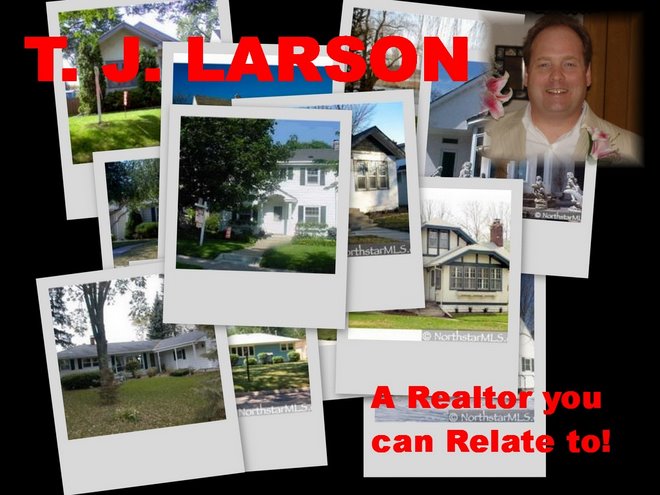Real estate: Listing glut of 2006 may shrink
"To me, the stars are all starting to align," said Todd Shipman, outgoing president of the Minneapolis Area Association of Realtors. "It won't be a boom year, but we're back on track."
Is that shameless optimism or an educated guess?
Shipman, a sales agent with Sky Sotheby's International Realty in Edina, said several facts point to a turnaround: Mortgage interest rates are lower than expected, the inventory buildup has started to slow and housing affordability has risen to its highest level in more than a year.
Still, the market will face plenty of challenges during the coming months, including increasing mortgage foreclosures, stagnant home prices and a glut of homes for sale.
According to a forecast released Thursday by the Minneapolis Area Association of Realtors, the number of closed home sales in the Twin Cities metro area during 2007 is expected to increase only about 1 to 2 percent, with the median sale price -- the point where half sell for more, half for less -- increasing about the same amount.
"It's going to be a slow recovery," Shipman said.
Still, those are enviable numbers compared with overheated markets such as Boston and Las Vegas, where median sale prices have fallen more dramatically.
Nationwide, existing home sales during 2007 are expected to decrease just 1 percent compared with 2006, according to the National Association of Realtors. In addition, the median sale price is projected to rise only 1.4 percent during 2006, to $222,600, and only another 1 percent during 2007.
"It should be a rather unexciting year in real estate," said George Karvel, professor of real estate at the University of St. Thomas in St. Paul. "The most exciting part will be that it should not be as hyperactive as it had been."
Absorbing a big supply
The theme of the coming year will be absorption, as sellers step back to avoid stiff competition and buyers step forward to take advantage of low interest rates and seller flexibility.
Karvel said that during the recent five-year run-up in prices, future demand was satisfied, leaving a dearth of buyers and too many listings.
At the end of the December, a seven-month supply of existing homes was on the market in the Twin Cities metro area, according to the Minneapolis association's weekly housing-supply outlook.
Mark Allen, association CEO, is confident that inventories will level off in the coming year, as home builders slow the pace of new construction. There will be fewer "opportunity sales" of the type created in recent years by the strong demand and double-digit price increases.
Allen predicted that the inventory level of 2006 will be a record, with new listings falling slightly during 2007 to the second-highest ever.
Home builders, who have experienced one of the worst years in a decade, are expected to see some improvement during 2007 as buyers regain their confidence -- and sell their existing homes.
Nationwide, the Commerce Department said that at the November sales pace, it would take 6.3 months to sell the nation's entire inventory of new homes.
"I think we're all feeling quite cautiously optimistic that the worst is behind us," said Wendy Danks, marketing director for the Builders Association of the Twin Cities. "Builders have paid attention and have stopped putting things in the ground" if they don't have buyers.
Through November, the number of planned new units in the Twin Cities metro area was down almost 26 percent compared with the first 11 months of 2005.
David Lereah, chief economist for the National Association of Realtors, predicted that sales of new homes will fall 17.7 percent in 2006 and then fall another 9.4 percent during 2007.
That shift is directly tied to the number of existing-home sales, as prospective new-home buyers delay their purchases for fear of not being able to sell their existing homes.
Plus, the high cost of new construction makes less-expensive existing homes all the more attractive to budget-conscious buyers.
Condo supplies are high
The condo market, which has been sagging under the weight of excess supply and has contributed to the bulk of all new construction in the metro area this year, has been particularly vulnerable.
But Tom Melchior, multifamily real estate analyst for Larson, Allen, Weishair & Co., said there could be a very modest turnaround in the condo market during 2007 as sellers get more realistic about pricing and unsold inventory finally moves.
"It won't be a great year, but it will be better than 2006," Melchior said.
Based on current demographic trends and buying patterns, he expected the pool of condo buyers to remain steady during the coming year but the supply-demand ratio to equalize somewhat as the number of new projects dwindles.
Whether buyers are shopping for new construction or existing homes, it's going to be a standout year, particularly for those who were priced out of the market during record sales periods and are now able to take advantage of seller discounts.
On Thursday, the National Association of Realtors said that home sales in November dipped 10.7 percent compared with November 2005, pushing the median sale price down 3.1 percent. That was the fourth monthly median-price decline and an indication that sellers are dropping prices.
The association predicted that mortgage interest rates will gradually increase during 2007, but marginally, to 6.7 percent for a 30-year fixed rate mortgage, by the fourth quarter of 2007.
Still, for some, the hangover isn't going to subside anytime soon. Sellers will struggle, buyers will worry and builders will hope.
And it's also going to be a year of reckoning for people who bought at the peak of the market a year or two ago and have to move, for homeowners with adjustable-rate mortgages they can't afford, and for buyers with subprime mortgages that they can't pay.
Subsequently, foreclosure rates are expected to rise dramatically as modest appreciation rates make it difficult for some people who are forced to sell to recover what they owe on their mortgages.
"For some people this hasn't hit home," said Tom Musil, director of the Shenehon Center for Real Estate at the University of St. Thomas.
"People got used to prices going up and up and up. ... This is when the reality comes to your doorstep."


No comments:
Post a Comment